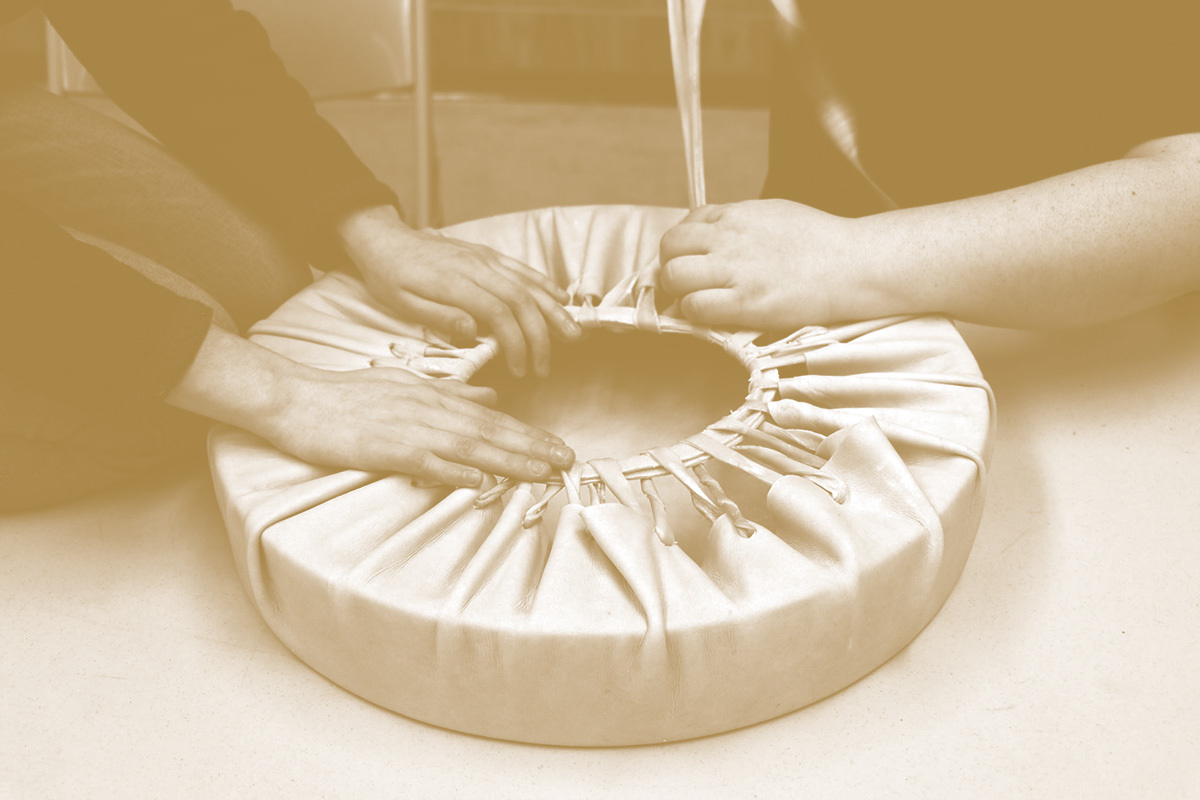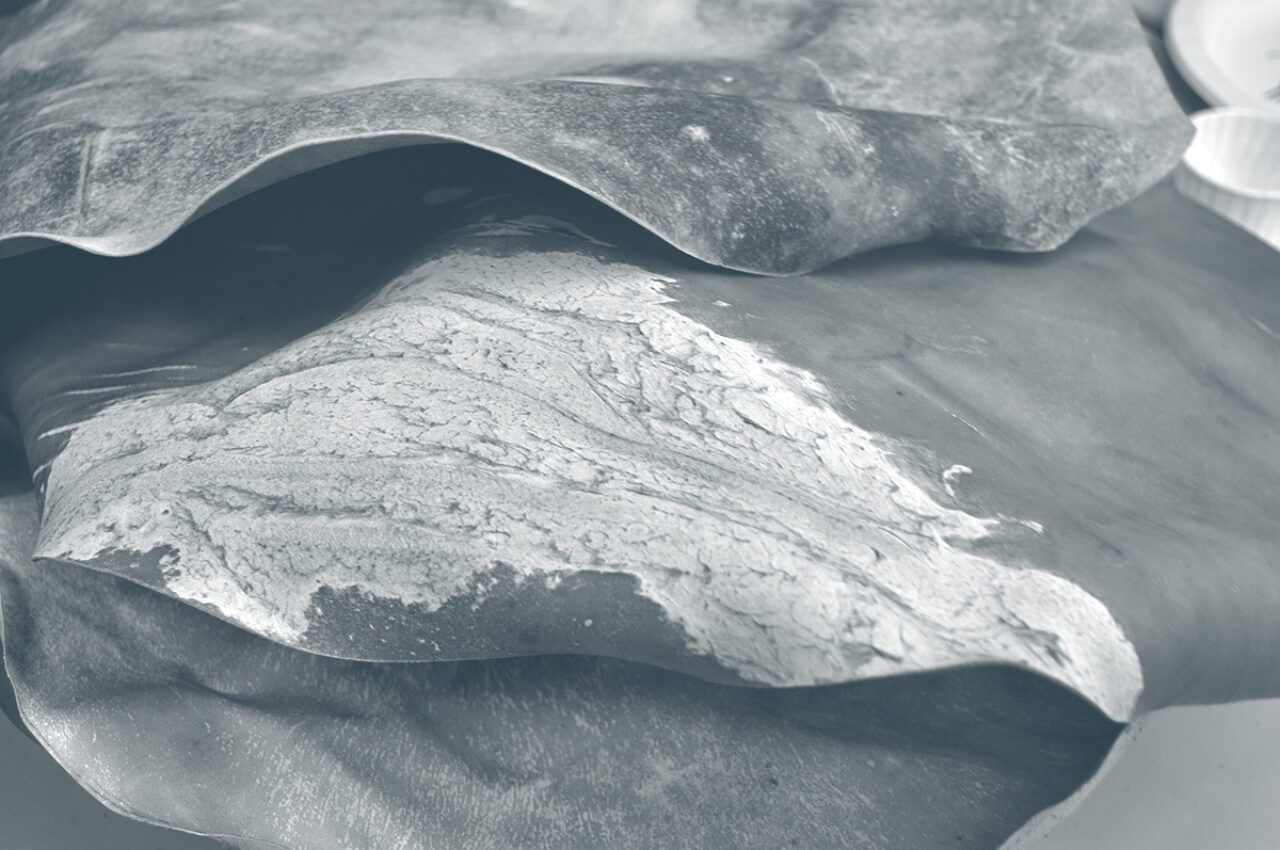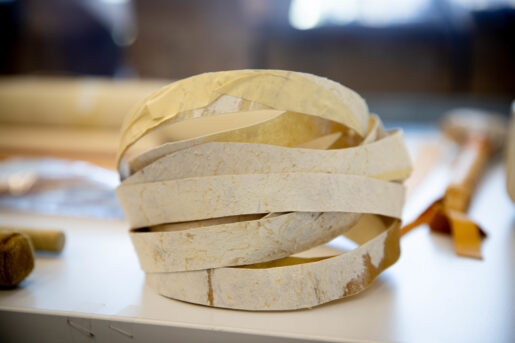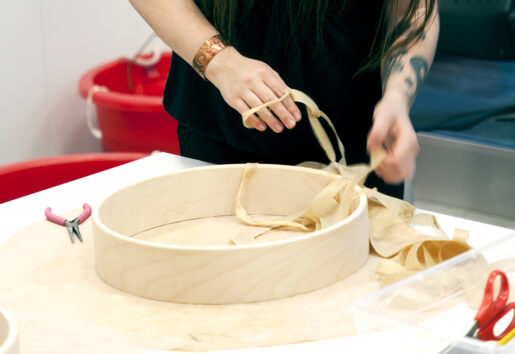New Exhibition + Publication Spotlight Indigenous-led Cultural Safety Education Program

From the Lheidli: Where the Two Rivers Meet project publication. (Image courtesy Aboriginal Gathering Place / Health Design Lab / College of New Caledonia)
Posted on | Updated
Lheidli: Where the Two Rivers Meet showcases a three-year project designed to shift how health professionals view Indigenous health and support Indigenous access to equitable care.
A new exhibition and publication trace a three-year project aimed at addressing racism in healthcare and improving health outcomes for Indigenous people through creativity and dialogue.
Both titled Lheidli: Where the Two Rivers Meet, the exhibition and project publication document the Decolonizing Cultural Safety Education Through Cultural Connections program. The program brought together healthcare workers and Indigenous community members from around the Prince George area in a culturally safe, structured environment to share insights as a group.
“Through our collaboration over the past three years, we have developed, tested, and refined a cultural safety education workshop model, referred to as Cultural Connections,” the team behind the program writes. “A key aspect of the workshop model is the prioritization of local Indigenous protocols and inclusion of local Indigenous artists, knowledge holders, and cultural advisors as workshop facilitators, supported by designers, design researchers, and a physician.”
The exhibition and publication both launch Aug. 11 via Two Rivers Gallery, with the show on view through Sept. 25. Cultural Connections is run in collaboration between the Aboriginal Gathering Place and Health Design Lab at Emily Carr University, and the Executive Director of Aboriginal Education at the College of New Caledonia (CNC), and funded through a Systems Change Grant from the Vancouver Foundation.
During a series of workshops, participants directly addressed the “connection between Canada’s colonial past and present, and the health inequities we see today,” Brenda Crabtree writes in Lheidli: Where the Two Rivers Meet. Brenda, a member of the Spuzzum Band in the Nlaka’pamux territory, is Director of Aboriginal Programs at ECU and Special Advisor to the President on Indigenous Initiatives.
We need to value the intangibles, the immeasurables, such as personal and cultural safety, and self-esteem.
Brenda notes the legacy of colonial practices such as Canada’s residential school system and the Sixties Scoop includes staggering disparity in healthcare for Indigenous people. The 2020 In Plain Sight: Addressing Indigenous-specific Racism and Discrimination in B.C. Health Care Data report, produced by the BC Ministry of Health, documents ongoing, widespread “Indigenous-specific stereotyping, racism and discrimination” in healthcare. Statistics bear out the personal cost of this discrimination, revealing Indigenous mortality rates far in excess of the general population.
Cultural Connections aims to change this through exploring a new model for healthcare education. Such an educational model would “include the pillars of cultural competency,” and “recognize the limitations of classrooms/clinical practice in teaching those pillars,” with the goal of finding new methods to “move healthcare providers to a place where they integrate them into their practice,” Brenda writes. This work, she adds, is an exercise in envisioning a future where Indigenous health outcomes are no different than non-Indigenous ones.
“We aren’t just compiling a list of inequities; we are reversing the colonial lens,” she continues. “Instead of the colonial gaze looking at us, we are trying to look out at you, the non-Indigenous community, the healthcare providers who can make a difference … We need to value the intangibles, the immeasurables, such as personal and cultural safety, and self-esteem.”
Connie Watts (MFA 2022), who is of Nuu-chah-nulth, Gitxsan and Kwakwaka’wakw ancestry, is Associate Director of Aboriginal Programs at Emily Carr University. Reflecting on the workshops, Connie says changes to the dynamics between health professionals and Indigenous participants were palpable. “It was remarkable to see racism dissolve from the room, to leave it filled with compassion, understanding and hope.”

From the Lheidli: Where the Two Rivers Meet project publication. (Image courtesy Aboriginal Gathering Place / Health Design Lab / College of New Caledonia)
Marlene Erickson, an Elder of the Nak’azdli Whut’en Nation and a member of the Lusilyoo (Frog) Clan, is Executive Director of Aboriginal Education at the College of New Caledonia. She notes how the Cultural Safety model provides “foundational” lessons for transforming healthcare.
“Lots of people don’t go to doctors until they’re in a great deal of pain, and often in end-stage illness because they are ashamed,” Marlene writes. “Add to this the lack of understanding on the part of the healthcare professional, and you have the tragic health outcomes we see too often today. Through making, sharing and discussion we create understanding.”
This understanding is a part of cultural competency, Marlene continues. It is also a key tool for revealing the humanity behind the statistics, and for creating meaningful change in Indigenous healthcare.
“Cultural competency — which the elders call gentle hands — is a critical component of improving the health outcomes of Indigenous people; probably as important as the medical knowledge that students learn. We hope workshops like this one will instill those skills so participants will carry them into their professional practice and beyond.”
An opening reception and launch event for Lheidli will be held at Two Rivers Gallery’s Rustad Galleria in Prince George, BC, from 5 to 8pm on Aug. 11. Read the full text of the Lheidli publication online via the Health Design Lab.
Read our previous stories about the launch of the Cultural Connections program (formerly known as Decolonizing the Healthcare System through Cultural Connections), and the 2021 virtual workshops.

